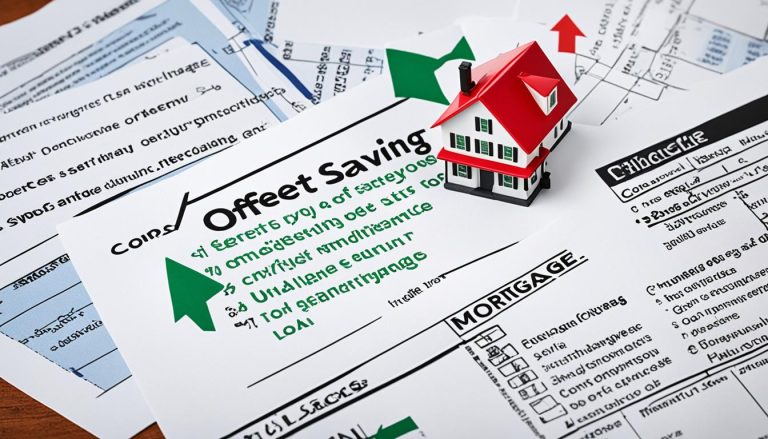Understanding how mortgage interest is treated for tax purposes in the UK is crucial for homeowners, landlords, and property investors alike.
While some may assume interest payments are fully deductible, the reality under current HMRC rules is more nuanced and depends heavily on the type of property and ownership structure.
What Does HMRC Say About Mortgage Interest Tax Relief in the UK?

The rules on mortgage interest tax relief in the UK are governed by HM Revenue & Customs (HMRC). These rules have seen substantial changes, particularly in the last decade, and they vary significantly between homeowners and landlords.
For residential homeowners, mortgage interest on a main residence is not tax deductible against personal income tax.
The UK does not offer the same kind of mortgage interest relief that is available in some other countries. This is a key distinction that often causes confusion among new homeowners.
In contrast, landlords who own buy-to-let properties may still receive a form of relief on mortgage interest, although it has changed significantly in recent years.
Since the introduction of Section 24 of the Finance Act 2015, landlords can no longer deduct the interest portion of their mortgage payments from their rental income before calculating their tax liability.
Instead, they receive a basic rate tax credit, which significantly affects how their taxable rental income is calculated.
These tax changes were phased in between 2017 and 2020 and have reshaped how property income is taxed in the UK.
They primarily target individual landlords, while limited companies and corporate landlords are largely unaffected.
Can Homeowners Claim Mortgage Interest on Their Personal Residence?
Mortgage interest tax relief is not available to homeowners for their main residence. Regardless of income level or loan size, individuals living in the property they own cannot claim tax relief on the interest portion of their mortgage.
Even where a portion of the home is used for business purposes, the mortgage interest typically remains non-deductible unless the taxpayer is self-employed and can justify partial claims through allowable business expenses.
In such cases, only a proportion of costs, such as utilities and internet, may be allowable, and this is subject to strict HMRC rules.
This tax treatment encourages a clear separation between personal and investment property ownership.
While the UK government offers schemes to assist first-time buyers, such as Stamp Duty relief and Help to Buy ISAs, it does not provide income tax deductions related to mortgage interest for residential occupancy.
Is Buy-to-Let Mortgage Interest Still Tax Deductible in the UK?

The system for tax relief on buy-to-let mortgage interest has shifted from a direct deduction to a more limited tax credit.
Prior to 2017, landlords could deduct the full cost of mortgage interest from their rental income, significantly reducing their taxable income. This model was highly beneficial for those in higher and additional rate tax brackets.
However, this approach was viewed by HMRC as giving landlords an unfair tax advantage compared to ordinary homebuyers. Consequently, Section 24 was introduced to restrict this benefit.
Now, landlords receive a 20% tax credit on the interest paid, regardless of their income tax band.
This means that higher and additional rate taxpayers can no longer offset their full tax liability using interest payments.
The table below illustrates how the tax relief has changed:
Buy-to-Let Mortgage Interest Tax Relief Comparison
| Scenario | Old System (Before 2017) | New System (After 2020) |
| Mortgage Interest | £10,000 | £10,000 |
| Rental Income | £20,000 | £20,000 |
| Deductible Mortgage Interest | £10,000 | £0 (added back to income) |
| Taxable Profit | £10,000 | £20,000 |
| Tax Rate | 40% (Higher Rate) | 40% (on £20,000) |
| Tax Before Relief | £4,000 | £8,000 |
| Tax Credit (20% of Interest) | N/A | £2,000 |
| Final Tax Bill | £4,000 | £6,000 |
This example shows the effective increase in tax liability for higher-rate taxpayers under the current regime.
The 20% tax credit applies universally, reducing the incentive for individuals with large property portfolios held personally.
How Does Section 24 Affect Landlords and Property Investors?
Section 24 of the Finance Act 2015 introduced significant changes to the way landlords report their income and calculate tax. This legislative shift has had a considerable financial impact on private landlords across the UK.
What Is Section 24?
Section 24 is a regulation that restricts the ability of individual landlords to deduct mortgage interest and other finance costs from their rental income.
Before its introduction, landlords could subtract these costs in full when calculating taxable profits.
Now, they must report the gross rental income and can only claim a basic rate tax credit of 20% on interest paid.
The policy was phased in between April 2017 and April 2020:
- In 2017–2018: 75% of finance costs were deductible, 25% given as a tax credit
- In 2018–2019: 50% deductible, 50% tax credit
- In 2019–2020: 25% deductible, 75% tax credit
- Since 2020–2021: 0% deductible, 100% tax credit only
How Does It Change Tax Calculations for Landlords?
Under the current system, landlords are taxed on the full rental income, not the income after deducting mortgage interest.
This inflates the reported profit and, in some cases, pushes landlords into a higher tax band, increasing their liability for:
- Income tax
- Student loan repayments
- Child benefit clawbacks
- Loss of personal allowance (if earnings exceed £100,000)
The increased tax burden is particularly significant for landlords with highly mortgaged properties in areas where yields are moderate.
How Does Section 24 Affect Landlord Behaviour?
Many landlords have been forced to review their investment strategy due to rising tax bills and reduced net yields. As a result:
- Some have sold properties to reduce borrowing
- Others have transferred ownership to limited companies (though this has legal and tax implications)
- There has been a rise in landlords seeking professional tax advice or restructuring their portfolios
Section 24 has also led to increased rent prices in some areas as landlords pass on the additional tax burden to tenants.
Are There Any Exceptions to Mortgage Interest Tax Deductions in the UK?

While Section 24 applies to most private landlords who own properties in their personal name, there are important exceptions that allow some entities and property types to deduct mortgage interest from income.
Do Limited Companies Qualify for Full Interest Deduction?
Yes, properties owned by limited companies are not affected by Section 24. These entities can still deduct 100% of mortgage interest and finance costs from rental income as a business expense before paying corporation tax (currently 19% or 25%, depending on profit thresholds).
This has led to a rise in landlords purchasing properties via Special Purpose Vehicles (SPVs) or converting existing portfolios to company ownership. However, doing so can trigger:
- Capital gains tax on transferring property
- Stamp duty on the “purchase” by the company
- Higher mortgage rates on limited company buy-to-let products
Despite these considerations, company structures offer advantages in terms of profit retention, tax planning, and inheritance planning.
What About Furnished Holiday Lets (FHLs)?
Furnished holiday lets operate under different tax rules. If the property qualifies as an FHL, mortgage interest is still fully deductible from rental profits. To qualify, the property must:
- Be available for letting at least 210 days per year
- Be actually let for at least 105 days per year
- Not be let to the same person for more than 31 consecutive days for over 155 days in a year
FHLs also qualify for capital allowances, and profits may count as earned income, which is beneficial for pension contributions.
Can Commercial Properties Claim Interest Deduction?
Yes. Owners of commercial properties (e.g., shops, warehouses, offices) can continue to deduct mortgage interest as part of their business expenses. These rules are not affected by Section 24 because they fall under a different set of tax regulations.
Commercial landlords often benefit from:
- Full deductibility of finance costs
- Indexation allowance for historic capital gains (prior to 2018)
- More flexible ownership structures
These factors make commercial property a viable alternative for landlords affected by residential tax changes.
What Happens with Additional Borrowing Against Property?
Landlords often refinance properties to release equity. The deductibility of mortgage interest on additional borrowing depends on how the funds are used:
- If the loan is used to improve or repair the rental property, the interest may qualify for tax relief
- If used to buy another rental property, the interest may be deductible against income from the new property
- If used for personal reasons (e.g., holidays, paying off other debts), the interest is not deductible
Proper documentation and clear separation of personal and business borrowing are essential to ensure compliance with HMRC rules.
What Other Property-Related Expenses Are Tax-Deductible in the UK?
In addition to the restricted mortgage interest relief, landlords can reduce their taxable rental income through various other allowable expenses. These must be wholly and exclusively for the purpose of renting out the property.
Common deductible expenses include:
- General repairs and maintenance (excluding improvements)
- Letting agent and management fees
- Council tax and utility bills if paid by the landlord
- Building and contents insurance for rental property
- Legal and accounting fees related to rental activity
It’s crucial to differentiate between allowable expenses and capital expenses. Repairs are generally deductible in the tax year they occur, while improvements must be added to the cost base for capital gains tax purposes upon sale.
Landlords should also keep clear records of all income and expenses. HMRC may request documentation, especially where expenses significantly reduce reported profits.
How Can UK Landlords Minimise Tax on Rental Income Legally?

To manage tax liability effectively, landlords should consider legal strategies that align with their financial goals and investment timeline.
Forming a limited company is one of the most common approaches. In this structure, the company pays corporation tax on profits, and mortgage interest is fully deductible.
However, landlords should consider the implications of extracting income from the company, as dividends and salaries have their own tax consequences.
Other strategies include:
- Allocating ownership shares to utilise both spouses’ personal allowances
- Claiming all allowable expenses, including accountant fees, mileage, and replacement of domestic items
- Considering furnished holiday lets if the property qualifies
- Reviewing mortgage terms and refinancing where interest rates and terms can be optimised
Working with a tax adviser is recommended to assess long-term implications and structure the property business efficiently.
Should You Reconsider Your Investment Strategy Based on Tax Relief Changes?
The changes in mortgage interest tax relief have undoubtedly altered the profitability of some rental investments.
While property remains a tangible and appreciating asset class, landlords must adapt to ensure continued returns.
Factors that influence investment decisions now include:
- The impact of higher taxable profits on cash flow
- Reduced relief for leveraged properties
- The administrative burden of managing multiple properties under new rules
- Opportunities in alternative structures such as corporate ownership or pension-based investments
Tax planning is now a core part of property investment in the UK. With interest relief capped and inflation affecting rental yields, many landlords are diversifying or consolidating their portfolios.
Conclusion
So, is mortgage interest tax deductible in the UK?
For residential homeowners, the answer is a clear no.
For landlords, the answer is yes—but in a limited form. You can’t deduct mortgage interest directly anymore, but a 20% tax credit helps offset the impact—especially for basic rate taxpayers.
Navigating these changes requires strategic thinking, sound record-keeping, and often professional tax advice. For serious investors, property remains a viable asset class, but the rules of engagement have changed.
Frequently Asked Questions
What is Section 24 and how does it affect mortgage interest tax relief?
Section 24 of the Finance Act 2015 phased out full mortgage interest deduction for landlords and replaced it with a 20% tax credit, affecting net rental income calculations.
Can I still deduct mortgage interest if I own property through a company?
Yes. Companies can fully deduct mortgage interest from profits before calculating corporation tax.
Is the 20% tax credit the same as full mortgage interest deduction?
No. The 20% tax credit offers less relief, especially for higher and additional rate taxpayers who previously received 40–45% relief.
Does mortgage interest tax relief apply to holiday lets?
Yes, furnished holiday lets (FHLs) may still qualify for interest relief, provided they meet specific HMRC criteria.
How can I calculate my property tax liability in the UK?
Calculate your rental income, deduct allowable expenses, add back mortgage interest, apply income tax rate, and then subtract the 20% tax credit on mortgage interest.
What tax changes are expected for landlords in the coming years?
While no new mortgage interest changes are currently announced, ongoing reviews on capital gains and rental regulations could affect landlords.
Are there any tools to help landlords with tax calculations?
Yes. HMRC offers calculators, and several property tax software tools (like Property118 or TaxCalc) help landlords estimate tax liabilities.






